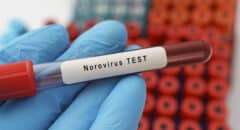
Critics of affirmative action are making a long-shot appeal to halt California’s requirement of unconscious bias training in every continuing medical education class for doctors, according to a report from California Healthline.
A three-judge panel of the 9th U.S. Circuit Court of Appeals in July upheld California’s mandate that courses doctors take to remain licensed must address how bias affects health outcomes for racial and ethnic minorities.
The ruling was a setback for the nonprofit Do No Harm and Los Angeles ophthalmologist Azadeh Khatibi, who sued the state.
In August, the Pacific Legal Foundation, representing Do No Harm and Khatibi, asked for an 11-judge appellate panel to reconsider the case. Attorney Caleb Trotter of the foundation called the ruling “very clearly wrong” and said that if the appeal fails, his firm could take the case to the U.S. Supreme Court, as reported by California Healthline.
What’s at stake
Legal scholars say the case could decide how far states can go in setting education requirements, including health equity training, for licensed professionals.
Erwin Chemerinsky, dean of the University of California-Berkeley law school, said the appellate decision was “clearly correct” and called the chance of Supreme Court review “very unlikely,” as reported by California Healthline.
California began requiring bias training in 2022. While five other states have similar laws, California is the only one requiring it in every class involving direct patient care.
Supporters of the mandate say it addresses serious racial gaps in health care. Black women, for example, are three to four times more likely than white women to die from pregnancy-related causes. Studies also show Black patients are often prescribed less pain medication than white patients for the same symptoms.
Critics call it compelled speech
Khatibi argues the law forces doctors to promote an ideology rather than science. “The government is mandating doctors endorse a specific ideology or priority instead of science,” she told California Healthline.
The appellate panel rejected that view, writing that no one is forced to teach state-accredited continuing education. The judges said the training requirement counts as government speech, which is not subject to free speech protections.
Ashutosh Bhagwat, a UC Davis law professor, compared the rule to a private school required to teach math. “Doesn’t matter if you don’t want to teach math. Doesn’t matter if you don’t believe in math,” he said. “You have to teach math.”

Concerns over equity and health outcomes
Bias in clinical care is well documented. A 2022 report found bias contributes to health disparities but noted that training programs may not always work and can sometimes worsen outcomes if poorly designed.
Black families, who already face barriers to quality health care, could be most affected if courts block efforts like California’s. Democratic U.S. Rep. Sydney Kamlager-Dove, who wrote the bill as a state legislator, said consistent training can help close these gaps.
“By connecting every provider to consistent and evolving training, we can help close these gaps and provide more equitable care,” she said.
Legal and political ripple effects
Trotter warned that if the rule survives, other states might extend such mandates to dozens of professions, from teachers to social workers.
But Joan Williams, a UC Law-San Francisco professor, said lawsuits like Khatibi’s, while unsuccessful, still create fear among policymakers. “There’s been this huge attack on DEI, and it’s been extraordinarily effective in creating regulatory risk,” she said.
Cristina Gonzalez, a professor at New York University’s medical school, said California’s approach could be improved by letting experts, not all instructors, lead the training. Done poorly, she said, the courses can make doctors defensive. Done correctly, they can reduce prejudice.
“The messaging has to be, ‘You’re not a bad person,’” Gonzalez said.
For Black patients facing higher risks of maternal death, undertreatment, and misdiagnosis, the debate over bias training is not just about free speech. It is about whether the health care system can begin to address long-standing inequities in care.








